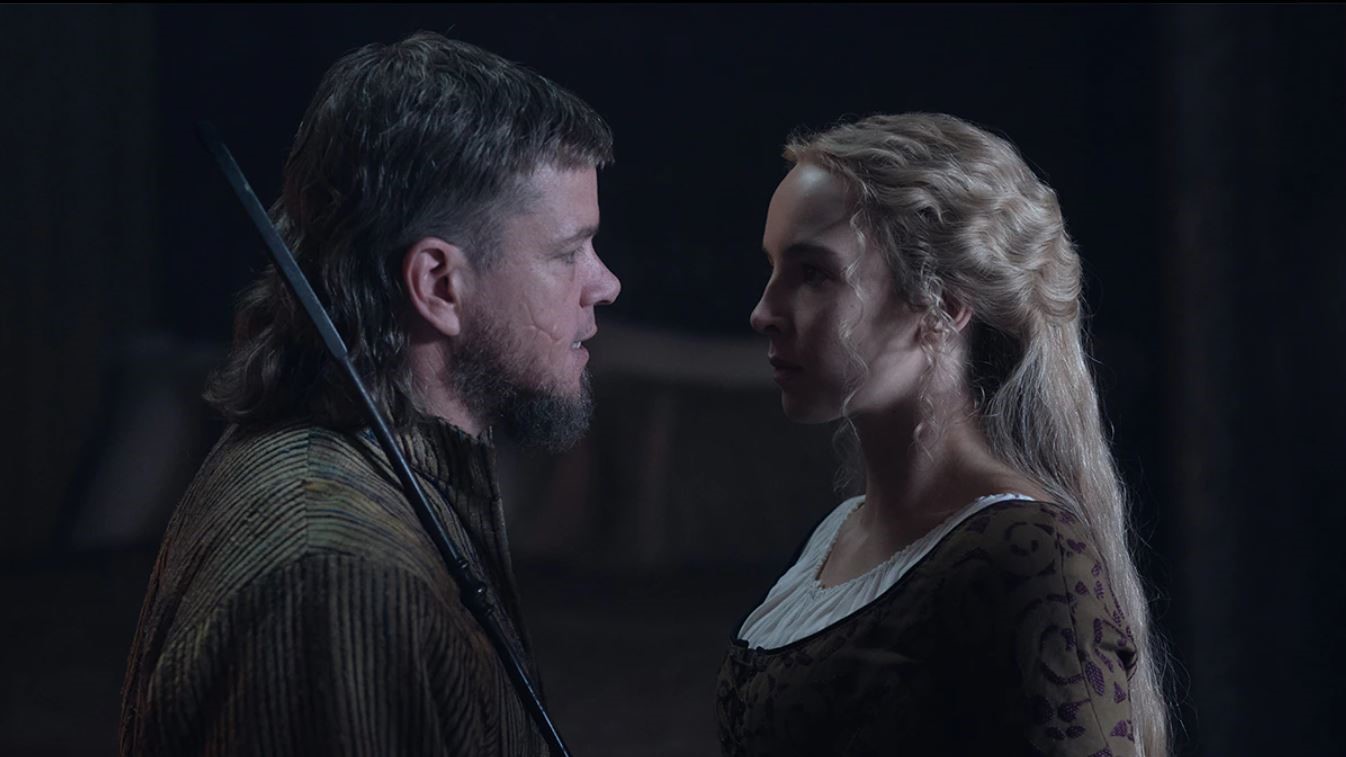What to Watch Verdict
However much the film is limited in its feminist perspective, the sheer technical competence and strength of the performances makes 'The Last Duel' an entertaining, if not exactly deeply nuanced, tale.
Pros
- +
Uniformly excellent performances across the board
- +
'Rashomon'-like screenplay that plays with egocentric self-perception
- +
Crunchy medieval action as only Ridley Scott can deliver
Cons
- -
The swings at feminist commentary are muddied and ultimately too forgiving of men in patriarchal power structures
- -
The insistence on showing the same sexual assault twice overemphasizes an obvious point
The Last Duel is a film somewhat at odds with itself from a critical perspective, as it is a fully realized version of exactly what it intends to be, but it’s hard not to recognize the film as limited by the perspectives that informed its creation. Director Ridley Scott teams up with a reunited screenwriting duo of Ben Affleck and Matt Damon, accompanied by fellow writer Nicole Holofcener, for a film that is one part historical drama, one part plot-structural flex, one part swords-and-armor actioner and one part feminist critique.
It’s that last function that leaves something to be desired in execution, portraying a muddied conception of a thesis that prioritizes social structures over individual culpability. But The Last Duel delivers on its other goals admirably enough that it still holds together, perhaps even transcending the reservations one may have as to its central messaging.
The film portrays the friendship-cum-rivalry of medieval squires Jean de Carrouges (Damon) and Jacques Le Gris (Adam Driver) as it develops over the latter decades of the 14th century, culminating in Jean’s wife Marguerite’s (Jodie Comer) accusation of Le Gris of sexual assault that pitted the two men in the last royally sanctioned duel in French history. Rather than present this in purely chronological fashion, the filmmakers have opted for a structure not unlike Rashomon, splitting the film into three chapters that recount events from the perspectives of Jean, Le Gris and Marguerite, with Marguerite’s perspective framed as the historically accurate one.
With this unfolding of disparate perspectives comes subtle nuances in the uniformly excellent performances that emphasize how each of the principal players casts themselves as the protagonist of their own lives. Is Jean a put-upon royal loyalist whom fate continually contrives to deny his rightful place as an esteemed nobleman, or is he a bumbling incompetent too wrapped up in notions of honor to gauge the consequences of his actions? Is Le Gris a conniving serpent who worms his way into Count Pierre d’Alençon’s (Ben Affleck) graces, or does he receive favor because he shares the count’s predilection for partying and womanizing? (Affleck’s portrayal of Pierre as a foppish frat bro is a surprising seed of comic levity.)
Thankfully the film never goes so far as to question the veracity of Marguerite’s claims that she was sexually assaulted — though two separate portrayals of that encounter with varying intensity is perhaps overkill in portraying the gulf between how Le Gris and Marguerite saw it — but it does interrogate her inner life in a way that neither her husband nor her apparently lovestruck rapist consider.
This is where the film somewhat fumbles its central themes, not for lack of effort or good intention, but for an inability to fully explore some of the nuances of what it posits. It’s all well and good to frame the social conception of rape as a product of influences that are larger and more pervasive than either the perpetrator or the survivor, but the framing goes so far as to suggest that Le Gris cannot even conceive that he criminally violated Marguerite’s autonomy, that he is so much a product of his culture that emphatic protestations against consent register as little more than a game to him. Whether it’s a failure of Driver’s performance, Ridley’s direction or the screenplay itself, the film is too blunt in its conception of Le Gris’ character as a philandering romantic unaccustomed to being denied his desires. The slow reveal of his mindset is effective in the dramatic sense, but the film’s social commentary is much better served in deconstructing Jean’s oafish entitlement to Marguerite’s autonomy, as well as Marguerite’s quiet competence in running his estate and the necessity she feels in speaking out against her attacker is spite of the social pressures against her.
That fault in the film’s ambitions would hit much harder if Sir Ridley Scott weren’t so entertaining as a director. No one films crunchy, medieval action quite like Scott (with cinematographer Dariusz Wolski), and his ethos that every scene contain some sense of rising tension carries through in a viscerally engaging manner, putting us in the mindsets of these self-centered masculine forces before stripping away their bravado to show the artificial power structures that prop them up.
Admittedly, Claire Simpson’s momentary editing occasionally comes across as rushed when the film all too quickly cuts away in order to preserve the limited perspective of whoever is dominating a given chapter, but the unfolding motivations of these characters is a monument to extremely well-realized structural editing informed by a rock-solid screenplay. Enhanced by a rich score from Harry Gregson-Williams, The Last Duel balances the epic feeling of its setting with the intense intimacy of its central conflict.
It isn’t hard to see why a film like The Last Duel exists, particularly as a vehicle for award-winning talent to continue making the kind of film that we mostly only see crop up during awards season anymore. Combine a historical drama with the topical discussion of the modern #MeToo movement and you at the very least have a buzzworthy movie to drive a conversation. And for however much the film is limited in its feminist perspective — the principal creatives are still majority men, after all — the sheer technical competence and strength of the performances makes The Last Duel an entertaining, if not exactly deeply nuanced, tale of individual ego and institutional misogyny.
The Last Duel opens in theaters on Oct. 15.
Leigh Monson has been a professional film critic and writer for six years, with bylines at Birth.Movies.Death., SlashFilm and Polygon. Attorney by day, cinephile by night and delicious snack by mid-afternoon, Leigh loves queer cinema and deconstructing genre tropes. If you like insights into recent films and love stupid puns, you can follow them on Twitter.












